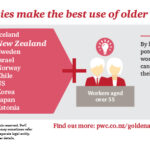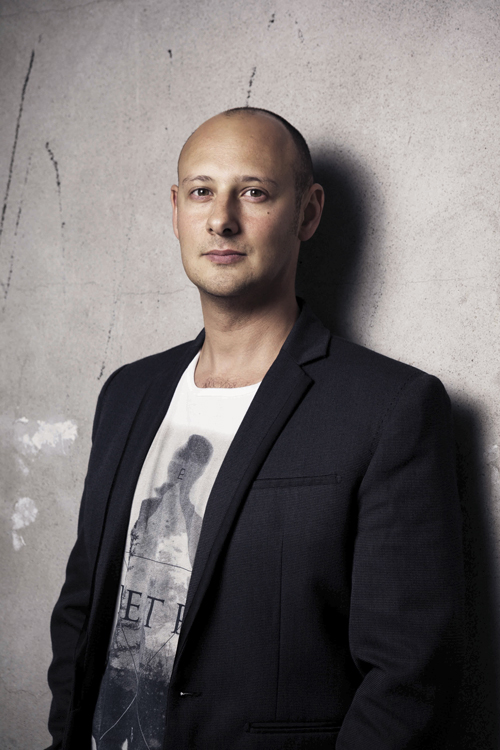In 15 years The Icehouse Business Growth Hub has morphed from one owner manager programme and an incubator to a full suite of services for businesses, including an investment arm. CEO Andy Hamilton reflects on a satisfying journey.
By Glenn Baker.
After a career spanning law, marketing and corporate investment, one winter’s day in June 2001 Andy Hamilton found himself standing in leased premises in Parnell’s landmark Textile Centre, with two months to organise a programme for owner managers. The BNZ would help source the 20 business owners, but meantime the programme had to be sorted, premises fitted out and start-ups found for the incubator. Working out of Auckland University, Andy was grateful for the support of the University’s Business School, and Geoff Whitcher and David Irving in particular.
Needless to say the programme went ahead as scheduled, and The Icehouse Business Growth Hub, as it is now referred to, went on to become a major contributor to New Zealand’s entrepreneurial community. And 15 years on, Andy’s kids are still asking him when he’s going to get a ‘real job’.
The answer to that question could well be “when we’ve reached the top of the mountain”, because that’s exactly how Andy sees it. “We’re not there yet; we’ve never got to a point where we could say, ‘wow, we’ve done everything we can do and now it’s time [for me] to move on.”
It’s a constant challenge to stay relevant to their customer group, he explains.
“Generally the level of knowledge and openness around business, and how to succeed in business, has increased significantly over the years.
“The start-up world has been fundamentally transformed, but the SME world has not changed massively. When I compare how we initially worked with start-ups with what we do now, it’s [like comparing] night and day.”
While the journey is far from over, the highlights remain firmly in Andy’s mind.
For a start there’re the many growth stories from the 700-plus business owners and 100 start-ups The Icehouse has supported. “The good, bad, ugly and awesome.”
“Their journey is the oxygen that keeps us going. It gives us a measurement tool and helps reinforce that what we’re doing is making a difference.
“When things don’t go well, it causes us to reflect on how we can be better. Learn from it so that we don’t repeat!”
Andy says they also get satisfaction from seeing the personal transformation of entrepreneurs and owner managers; and are amazed at how the various stakeholder partnerships have stepped up to the plate over the years.
Same but different
Fifteen years ago The Icehouse began with a two-segment focus on owner managers and hi-tech start-ups. That hasn’t changed; it’s still the core focus.
The owner manager offerings have adapted over time, says Andy, but are still centred on the Owner Manager Programme (OMP), which runs over five months. The biggest change has been the addition of coaching and improved implementation.
The start-up offerings have changed the most, he says. “We started as an incubator that gave advice and access to networks, charged customers a fee and occasionally facilitated investment funding for them.
“We’re now like an investment arm that charges no fees for services, invests directly and goes on the journey with the start-ups. It’s a massive change in our [business] model, caused by world trends and the need to truly support start-ups.”
The Icehouse is also now taking a ‘journey approach’, he explains, rather than being a ‘moment in time’ organisation. It’s resourced to work deeply with a couple of hundred owner managers per year and some 50 start-ups.
The stats are impressive. Over the years The Icehouse has accumulated an alumni of 5000 businesses – representing a total of 50,000 employees; helping grow job numbers by around 1000 per year. Andy’s reluctant to spotlight just a select few, but highlights Hamilton’s Prolife Foods, Auckland’s Farro Fresh, Ashburton’s NZ Sock Co, and one of its early ICE Angels investments, Adherium, as stand-outs.
Nothing succeeds like mindset
So what have the past 15 years taught Andy about business success?
Mostly, it’s about mindset, “the absolute unblocker of growth potential”.
“Nothing matters if you don’t have confidence, belief and an aspiration to grow. Most people focus on the ‘capability gaps’ which exist in Kiwi businesses and while that is a truth, we go nowhere until the mindset is right.”
He recalls Janine Draper from Farro Fresh saying that once she could picture the goal for her business, everything started to happen.
Having the competence and capability-set in your team and a group of advisors is critical for keeping up momentum, Andy says. In a nutshell, business growth comes from having the right team on board, strong networks, a powerful business ‘story’, a strategy to follow, and you, as the owner, demonstrating good leadership and management skills.
There’s no room for poor communication, poor staff alignment and development, a ‘making it up as you go’ mentality and complacency, he says.
A typical workday for Andy is split between his Icehouse team (his number one priority), customers (includes owners, start-ups and investors), and stakeholders (including Callaghan Innovation and NZTE).
“Our network is our intellectual property, and our obligation to customers is to curate and develop that network.”
The team meets 30 to 50 new people every month, which can test their focus, and Andy confesses that they don’t get things right every single time. But after 15 years The Icehouse now has history. He says it’s important to look back to both gather data and understand/validate whether what they’re doing is working. The stats don’t lie – for example, the employment population of Icehouse companies is currently 50,000, having grown by 14,400 since it began. That’s about 1,000 per year.
On average, businesses pre-OMP, turn over $8.7 million per year, grow 12 percent year-on-year to post around $27 million after ten years, while staff grow from 38 staff to 77. Only one in five attendees may be exporting, but five years after completing the OMP, that ratio reduces to one in three.
“Because they create belief and aspire to grow,” says Andy.
More important is the 2020 goal: adding up to ten percent of GDP to the economy through unleashing the potential of Kiwi business owners.
“This year we’ll update our long-term goals; we might even reach out to 2026 and adjust the measures,” says Andy. “We know we’re on track, and we know we could do better.
“We also know after 15 years where our sweet-spot is, how we can add value and make a difference.”



